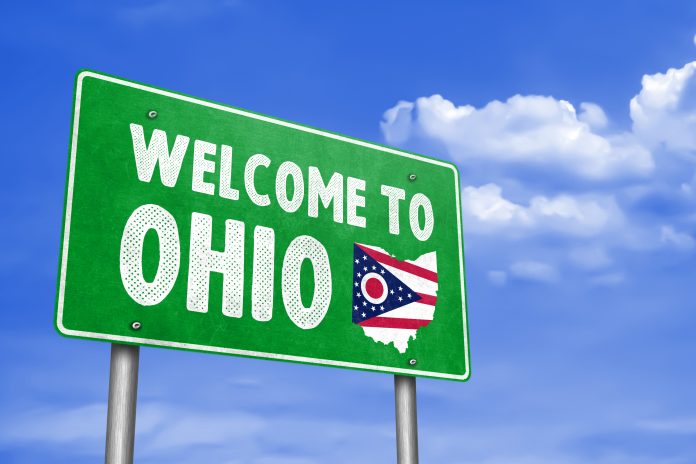Tax levy questions should only be on general election ballots since more voters are engaged, the Buckeye Institute says
Columbus, OH – On Tuesday, Nov. 29, The Buckeye Institute testified (see full text below or download a PDF) before the Ohio Senate Local Government and Elections Committee on the policies in House Bill 458 and urged lawmakers to protect Ohioans and limit tax levy questions to general election ballots when more voters are engaged and turn out to vote.
In his testimony, Greg R. Lawson, a research fellow at The Buckeye Institute, noted that eliminating Ohio’s peculiar August election would “save Ohio taxpayers the high price of these costly, low-turnout elections” and “help protect voters and taxpayers from narrow special interests looking to take advantage of low election-day turnout to pass controversial new rules or raise taxes.”
Citing voter turnout data, Lawson pointed out the obvious, “[s]pecial elections tend to represent special interests” and are used by special interest voters “to raise taxes on the broader community with little to no input or resistance—effectively disenfranchising the majority of voters and taxpayers.”
In addition to eliminating Ohio’s August special elections, Lawson urged lawmakers to “go further and only allow voting on tax levy questions during general elections that include state and federal offices on the ballot.” Doing so would “improve state and local government by restraining the power of special interest groups” and “require levy advocates to convince a larger, more representative block of voters that a tax hike is the way to go.”
These recommendations were also featured in an opinion piece authored by Lawson and published by The Center Square.
# # #
Ohio Should Limit Tax Levy Questions to General Election Ballots
Interested Party Testimony
Ohio Senate Local Government and Elections Committee
Ohio House Bill 458
Greg R. Lawson, Research Fellow
The Buckeye Institute
November 29, 2022
As Prepared for Delivery
Thank you, Chair Gavarone, Vice Chair O’Brien, Ranking Member Maharath, and members of the Committee, for the opportunity to testify regarding the policies in House Bill 458.
My name is Greg R. Lawson. I am a research fellow at The Buckeye Institute, an independent research and educational institution—a think tank—whose mission is to advance free-market public policy in the states.
By eliminating August special elections in Ohio, House Bill 458 accomplishes two important objectives.
First, it will save Ohio taxpayers the high price of these costly, low-turnout elections. According to the Ohio Association of Election Officials, August special elections are complicated, require virtually the same amount of planning and administration as primaries and general elections, and often prove surprisingly expensive. The most recent August election, for example, required the General Assembly to approve $20 million to ensure the election could even be held.
Second, and more importantly, eliminating August special elections will help protect voters and taxpayers from narrow special interests looking to take advantage of low election-day turnout to pass controversial new rules or raise taxes on unsuspecting communities. Off-cycle elections empower a small but motivated fraction of voters to hold sway over the vast majority of voters who are likely unaware that a question has even been asked, let alone put on a ballot. Such tactics strike at the very heart of our American self-government and allow the few to unfairly rule the many.
The most recent August election, for instance, saw an anemic 7.9 percent voter turnout statewide. That means that less than eight percent of eligible voters decided an issue for the rest of Ohio. By contrast, in the last 40 years, the lowest turnout in an Ohio general election without state or federal offices on the ballot was 27 percent in 2013, while the lowest turnout for an election with state and federal offices on the ticket was a disappointing 41 percent in 2014—still more than five times this August’s voter turnout. Going back to 1978, the average turnout in general elections with statewide and federal candidates on the ballot is more than 62 percent.
Voter data are clear. General elections represent voters generally. Special elections tend to represent special interests.
The danger of special interests ruling by special elections becomes even greater when local taxes and school levies are relegated to August or off-cycle elections. Proponents of levy or tax increases know that fewer voters are paying attention to such issues during a non-November election and will therefore be unlikely to rally in opposition. This move empowers a small unrepresentative band of special interest voters to raise taxes on the broader community with little to no input or resistance—effectively disenfranchising the majority of voters and taxpayers.
Fortunately, House Bill 458 would end Ohio’s notorious late-summer elections. But policymakers should go further and only allow voting on tax levy questions during general elections that include state and federal offices on the ballot. An exception could be made for declared fiscal emergencies designated by the state auditor but limiting levy votes to traditional general elections would almost certainly ensure higher voter turnout and a more representative result.
Eliminating Ohio’s August special elections will improve state and local government by restraining the power of special interest groups and keeping elected officials accountable to their constituents. And allowing tax levies to appear only on ballots that also include federal or statewide offices will require levy advocates to convince a larger, more representative block of voters that a tax hike is the way to go.
If Ohio continues to allow a tiny fraction of voting taxpayers to pass levies while the vast majority of voters remain understandably more concerned with summer’s family vacations or getting the kids ready for the new school year, then our democratic self-government will suffer, and the tail will continue to wag the dog.
I would be happy to answer any questions that members of the Committee might have.
Originally published by The Buckeye Institute. Republished with permission.
For more from Budget & Tax News.
For more public policy from The Heartland Institute.










